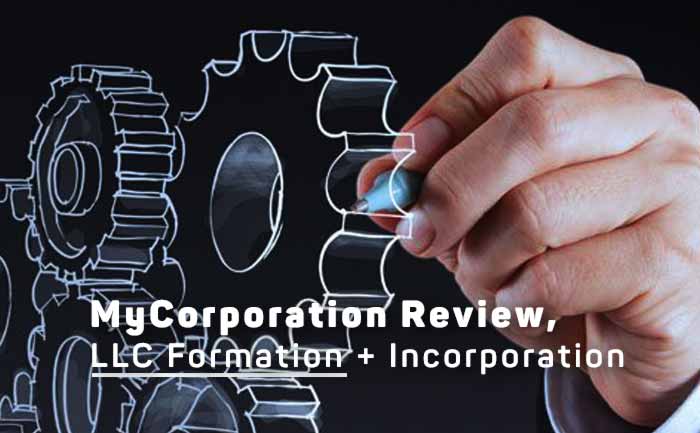When it comes to protecting your family’s wealth and assets, you have a couple of main options: trusts and limited liability companies (LLCs).
Both serve important purposes, but they work quite differently. This guide will break down the key features of family trusts and LLCs so you can decide which legal structure makes the most sense for your situation.
Whether your top priority is avoiding probate, minimizing taxes, shielding assets from liability, or setting up inheritances for your children – understanding trusts versus LLCs is crucial. We’ll cover the pros and cons of each so you can make the best choice for your family’s finances and future.
What is a Family Trust?
A trust is a legal arrangement where a trustor (the person creating the trust) transfers ownership of assets to a trustee, who holds and manages those assets for the benefit of the trust’s beneficiaries.
Family trusts are commonly used for estate planning purposes, allowing families to dictate how their wealth will be distributed and managed after they’re gone.
Benefits of a Family Trust:
- Avoids probate, keeping your affairs private
- Minimizes estate taxes through strategic asset distribution
- Provides continued asset management for beneficiaries
- Allows for specific instructions on asset distribution
Types of Trusts:
- Revocable Trust: Can be modified or revoked during the trustor’s lifetime
- Irrevocable Trust: Cannot be altered once established
- Testamentary Trust: Created through a will upon the trustor’s death
What is a Family Limited Liability Company (LLC)?
A family LLC is a business entity that provides liability protection and tax advantages for its members (owners). Unlike a trust, which is primarily used for estate planning, a family LLC can serve as an operating business or simply hold and manage assets like real estate, investments, or intellectual property.
Benefits of a Family LLC:
- Shields personal assets from business liabilities
- Passes profits directly to members, avoiding double taxation
- Allows for flexible management and ownership structure
- Facilitates asset transfer without probate
Key Differences Between Family Trusts and LLCs
Purpose: Trusts are primarily for estate planning, while LLCs are business entities that can also hold assets.
Formation
Trusts are private agreements, while LLCs require state registration and ongoing compliance.
Taxation
Trust assets are taxed at the trust or beneficiary level, while LLC profits pass through to members’ personal taxes.
Asset Protection
Trusts protect assets from probate and some creditors, while LLCs shield personal assets from business liabilities.
Privacy
Trusts are private agreements, while LLC ownership and formation details are public records.
When to Consider a Family Trust
If your primary goal is to plan for the efficient transfer of your estate while minimizing taxes and avoiding probate, a family trust may be the better option. Trusts are particularly useful for families with substantial assets, those with complex asset distribution plans, or those seeking to provide for beneficiaries with special needs.
When to Consider a Family LLC
A family LLC can be a powerful tool for families looking to operate a business together, hold and manage diverse assets, or protect personal assets from potential business liabilities. LLCs offer flexibility in management and ownership, making them attractive for families with entrepreneurial aspirations or those seeking creditor protection.
The Best of Both Worlds: Combining a Trust and LLC
In many cases, families may benefit from utilizing both a trust and an LLC in their estate and asset protection strategies. One common approach is to place the ownership interest of a family LLC into a trust. This way, the trust can dictate how the LLC and its assets are distributed to beneficiaries, while the LLC provides liability protection and potential tax advantages.
Seek Professional Guidance
Choosing the right legal structure for your family’s assets is a complex decision with far-reaching implications. It’s crucial to consult with experienced estate planning attorneys, tax professionals, and financial advisors to ensure your specific needs and goals are met.
They can guide you through the intricacies of trusts, LLCs, and other estate planning tools, helping you make informed decisions that protect your legacy. In the ever-evolving landscape of wealth management and asset protection, understanding the differences between family LLCs and trusts is vital.
By weighing the pros and cons of each structure, families can craft a tailored plan that safeguards their assets, minimizes tax burdens, and ensures a smooth transition of wealth to future generations.
The Bottom Line
Navigating the complexities of family asset protection and wealth transfer can be daunting, but understanding the differences between trusts and LLCs is a crucial first step. While trusts offer a more traditional approach to estate planning, LLCs provide flexibility and liability protection for business ventures and asset management.
Ultimately, the choice between a family trust or an LLC depends on your specific goals, assets, and risk tolerance. For many families, a combined strategy utilizing both structures may be the optimal solution, leveraging the strengths of each to create a comprehensive plan.
No matter which path you choose, seeking guidance from qualified professionals is essential. Their expertise can help you navigate the legal and financial intricacies, ensuring your assets are safeguarded and your legacy is preserved for generations to come. With careful planning and the right legal structures in place, you can gain peace of mind knowing your family’s future is secure.

Alfie Wilson, Esq., is a legal content writer with expertise in business formation, criminal law, veterans disability, family law, DUI law, personal injury, animal welfare, and legal writing. He holds a J.D. from Emory University School of Law and has experience in appellate advocacy and regulatory matters. Alfie’s passion lies in breaking down complex legal topics for a non-lawyer audience. He currently writes for law firms and non-profits on various issues and resides in Arlington, Virginia.








